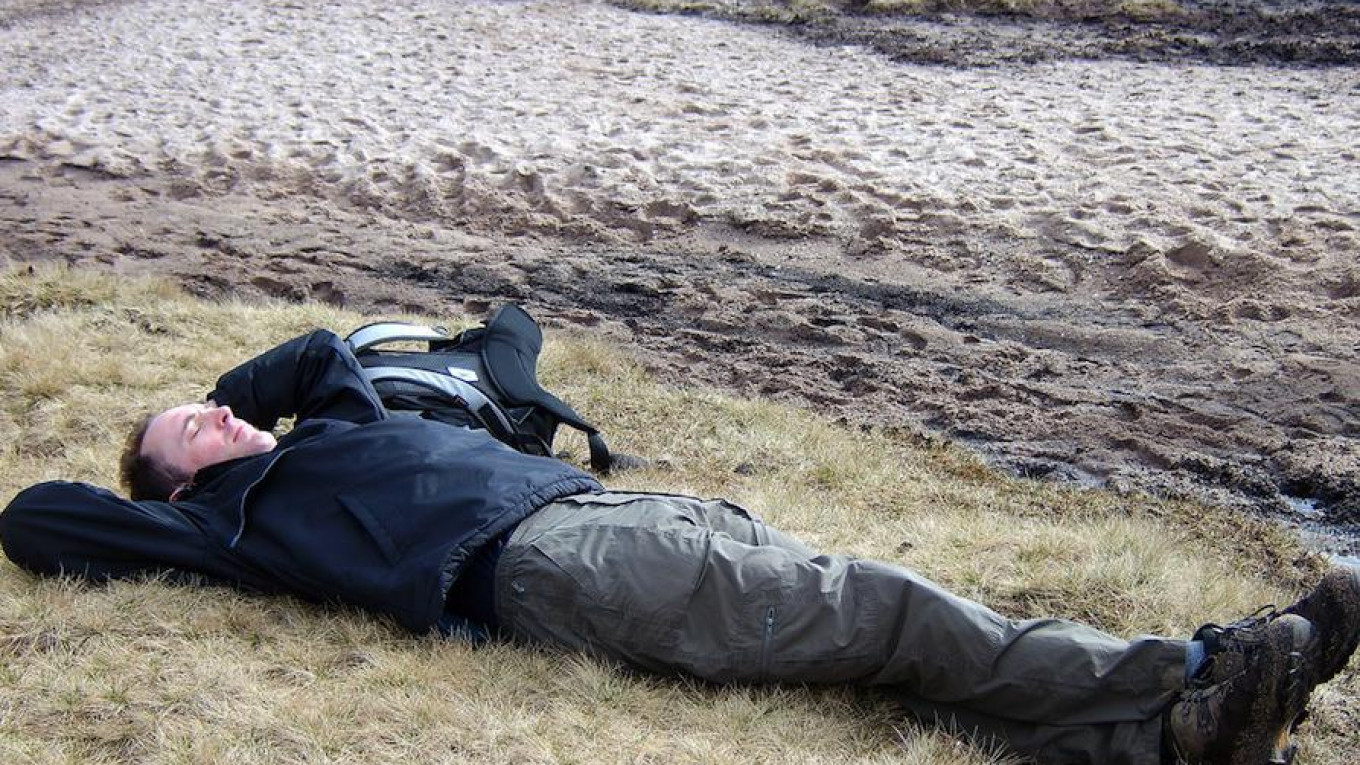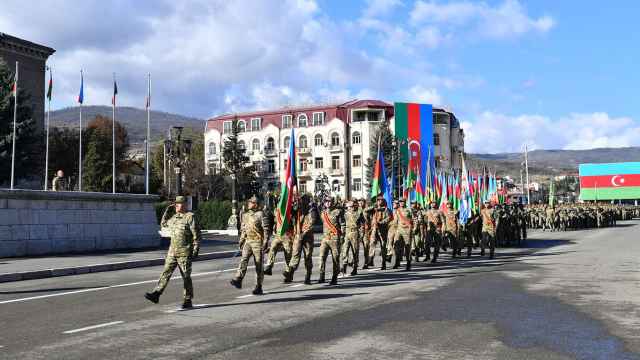Наплевать! I don’t give a damn
Russians are pretty good spitters. They aren’t world-class spitters, like in some countries where spectacular hawking sounds are part of the background noise and closed shoes with thick soles are a fashion necessity. Russia isn’t like that. But you do more spitting, literally and figuratively, in Russian than in English.
Let’s get through the tricky bit right away. The verb pair is плевать/плюнуть, and conjugation is — let’s be honest here — a nightmare. This isn’t the usual consonant cluster problem, but the vowel variation difficulty. If you have trouble with it, try singing a song along the lines of я плюю, она плюёт, мы все плюём (I spit, she spits, we all spit). Or think of it as onomatopoeia.
The perfective плюнуть is easier to deal with — я плюну и он плюнет (I’ll spit and he’ll spit). Dog owners will find this easy, since one of the top three commands we teach our critters is the imperative плюнь! (Spit it out!)
But the interesting thing about spitting is its figurative usage, which has too main meanings — indifference and contempt — and a mix of the two. A lot of the time the verb stands alone, either plain or its related form наплевать. Say someone tells you that your neighbors are gossiping about you. Your response: Наплевать! (I could care less.) Or: Мне не до того и вообще― наплевать (I don’t have time to deal with it and besides, so what?) Or you might be told to pay no attention to something, which is when indifference and contempt mix together into back-turning disdain: Неприятности с женой, да? Наплюй. (Trouble with the wife? Piss on that.)
For some reason, spitting from a high place implies greater indifference, and the higher the spitting platform, the greater the disregard. На все их работу и расходы ему наплевать с высокой колокольни (He didn’t give a squat for all their work and expenses, literally: he spat from a high bell tower.)
But spitting in someone’s face, soul or eyes is a grave insult. Here I beg you down on my knees, please, to never translate this as “I spit on you,” and most especially never ever say it aloud with a Boris and Natasha accent. In English we generally don’t spit, we insult, trample, stomp, or run roughshod. Чтобы выборы не состоялись, достаточно так наплевать в душу избирателям ложью, что в день выборов они останутся дома (To keep the elections from being valid, all you have to do is insult the voters with lies so that they stay home on election day.) Они в душу наплевали (They trampled on our feelings.)
Плевок is the noun, and means the thing you spit out — and sidestep on the street — as well as whatever you don’t care about. Это дело плевка не стоит (That deal isn’t worth the paper it’s written on.) And the vivid плёвое дело (spitting matter) means something simple: Маме готовить ужин для шести — плёвое дело. (Making dinner for six was easy as pie for my mother.) That is: Плюнул, сделал (easy-peasy, literally: spit and it’s done.)
But it can also indicate a lack of conscience: Ему врать — плёвое дело. (Lying for him is like rolling off a log.) Ему наплевать на приличия (He doesn’t give a damn about decency.) And what does this make you? Spitting mad.
Michele A. Berdy is a Moscow-based translator and interpreter, author of “The Russian Word’s Worth,” a collection of her columns.
A Message from The Moscow Times:
Dear readers,
We are facing unprecedented challenges. Russia's Prosecutor General's Office has designated The Moscow Times as an "undesirable" organization, criminalizing our work and putting our staff at risk of prosecution. This follows our earlier unjust labeling as a "foreign agent."
These actions are direct attempts to silence independent journalism in Russia. The authorities claim our work "discredits the decisions of the Russian leadership." We see things differently: we strive to provide accurate, unbiased reporting on Russia.
We, the journalists of The Moscow Times, refuse to be silenced. But to continue our work, we need your help.
Your support, no matter how small, makes a world of difference. If you can, please support us monthly starting from just $2. It's quick to set up, and every contribution makes a significant impact.
By supporting The Moscow Times, you're defending open, independent journalism in the face of repression. Thank you for standing with us.
Remind me later.








